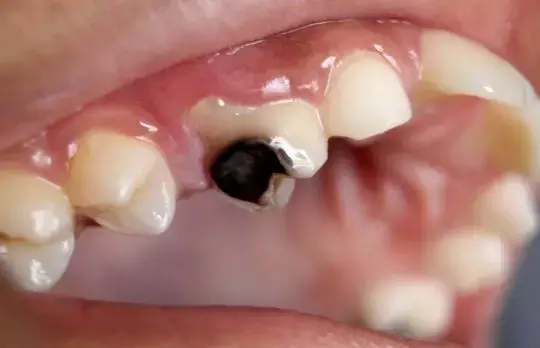- Home
- Medical news & Guidelines
- Anesthesiology
- Cardiology and CTVS
- Critical Care
- Dentistry
- Dermatology
- Diabetes and Endocrinology
- ENT
- Gastroenterology
- Medicine
- Nephrology
- Neurology
- Obstretics-Gynaecology
- Oncology
- Ophthalmology
- Orthopaedics
- Pediatrics-Neonatology
- Psychiatry
- Pulmonology
- Radiology
- Surgery
- Urology
- Laboratory Medicine
- Diet
- Nursing
- Paramedical
- Physiotherapy
- Health news
- Fact Check
- Bone Health Fact Check
- Brain Health Fact Check
- Cancer Related Fact Check
- Child Care Fact Check
- Dental and oral health fact check
- Diabetes and metabolic health fact check
- Diet and Nutrition Fact Check
- Eye and ENT Care Fact Check
- Fitness fact check
- Gut health fact check
- Heart health fact check
- Kidney health fact check
- Medical education fact check
- Men's health fact check
- Respiratory fact check
- Skin and hair care fact check
- Vaccine and Immunization fact check
- Women's health fact check
- AYUSH
- State News
- Andaman and Nicobar Islands
- Andhra Pradesh
- Arunachal Pradesh
- Assam
- Bihar
- Chandigarh
- Chattisgarh
- Dadra and Nagar Haveli
- Daman and Diu
- Delhi
- Goa
- Gujarat
- Haryana
- Himachal Pradesh
- Jammu & Kashmir
- Jharkhand
- Karnataka
- Kerala
- Ladakh
- Lakshadweep
- Madhya Pradesh
- Maharashtra
- Manipur
- Meghalaya
- Mizoram
- Nagaland
- Odisha
- Puducherry
- Punjab
- Rajasthan
- Sikkim
- Tamil Nadu
- Telangana
- Tripura
- Uttar Pradesh
- Uttrakhand
- West Bengal
- Medical Education
- Industry
Sweet taste receptor gene linked to caries risk

A 2023 study published in the Journal Of Dental Research has established the connection between the genes related to taste receptors and dental caries in the early dentition period involving age groups of 15 years, 24 years, and 31 years in the Oral Health Survey conducted by the panel of dentists. The oral examination was done clinically with the use of a mouth mirror & probe based on the criteria of Decayed, Missing, and Filled Teeth (DMFT) index.
According to the current research, sweet taste has been associated with a specific G protein- mainly expressed in epithelial cells of the tongue & palate- with the gene expressions T1R1, T1R2, and T1R3; T represents taste and R for receptors of three different types. Sweet taste receptors with genotype TAS1R3 (rs307355) and T1S1R2(rs35874116) were found to be valuable assets for further study. T1R2 and T1R3 are the core receptors for sweet taste in humans. Previous findings from Luciferase Reporter Assay have affirmed the effect of rs307355(TAS1R3) in gene transcription via altering the function and influencing the ability of the sweet taste in individuals belonging to different regions.
The Pelotas Birth cohort study, consisting of a representative sample of all the birth (5914) from 1982, was investigated for the current study. The decayed, missing, and filled tooth criteria, i.e., DMF-T criteria given by WHO & all the live births, were identified & included in the Oral Health Survey. The present study was reported under Reporting of Observational Studies in Epidemiology (STROBE). Interesting facts were revealed in the research done for investigating the effects of the two genotypes on dental caries, along with the impact of sugar in dental caries:
Allele analysis showed a consistent association between rs307355(TAS1R3) & decayed & missing tooth components.
Sugar consumption was found to be strongly associated with decayed and missing parts.
A combination of C with T, i.e., CT & T with T, i.e., TT, found a strong association with high dental caries index.
TAS1R2 shows a high chance of influencing dental caries' interaction with sugar due to its high taste threshold.
TAS1R3 was associated with an increased risk of decayed, missing teeth.
The study confirmed the effect of genetic influence on dental caries. This also makes a significant move towards finding the role of different taste buds on the occurrence of dental caries.
For the full article, follow the link given below-
https://journals.sagepub.com/doi/10.1177/00220345221138569
Reference: Journal Of Dental Research
Dr Satabdi Saha (BDS, MDS) is a practicing pediatric dentist with a keen interest in new medical researches and updates. She has completed her BDS from North Bengal Dental College ,Darjeeling. Then she went on to secure an ALL INDIA NEET PG rank and completed her MDS from the first dental college in the country – Dr R. Ahmed Dental College and Hospital. She is currently attached to The Marwari Relief Society Hospital as a consultant along with private practice of 2 years. She has published scientific papers in national and international journals. Her strong passion of sharing knowledge with the medical fraternity has motivated her to be a part of Medical Dialogues.
Dr Kamal Kant Kohli-MBBS, DTCD- a chest specialist with more than 30 years of practice and a flair for writing clinical articles, Dr Kamal Kant Kohli joined Medical Dialogues as a Chief Editor of Medical News. Besides writing articles, as an editor, he proofreads and verifies all the medical content published on Medical Dialogues including those coming from journals, studies,medical conferences,guidelines etc. Email: drkohli@medicaldialogues.in. Contact no. 011-43720751


